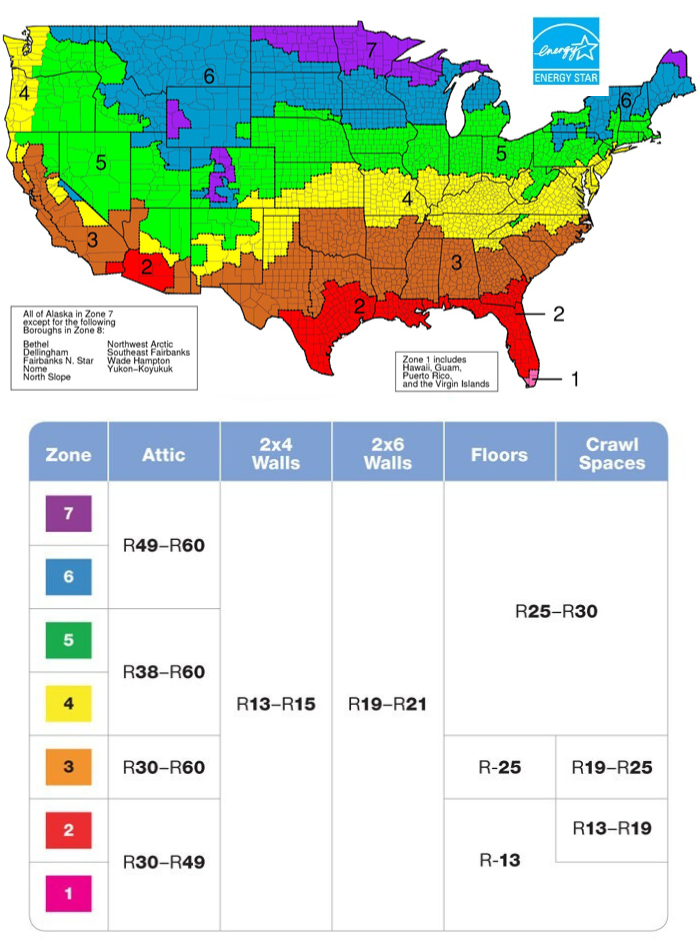R Factor For Attic Rafter Insulation

And owens corning ecotouch high density insulation products are designed specifically for these rafters.
R factor for attic rafter insulation. Add insulation to attic. Find your zone on the map and then use the chart to determine the level of insulation you need to properly insulate your attic walls floors and crawlspaces. Achieving greater r values in attics the higher the r value the better the thermal performance of the insulation. If the garage is open to the rafters the boards that support the roof use r 38 insulation between the rafters at the roof if they are 10 inches deep.
If the joists are 10 inches deep the cavity can take high density r 30 insulation which is 8 1 2 inches thick more than enough for floor insulation. R value for fiberglass or wool batts per inch is between r3 and r3 5 pros. Fiberglass r 19 batt insulation is about 6 inches thick and is available in 15 inch widths making it the correct size for insulating a two by eight floor joist system. According to home advisor insulating your attic can cost between 1700 to 2100.
Recommended insulation levels for retrofitting existing wood framed buildings. Owens corning raft r mate attic rafter vents. First things first you need to go up into your attic inspect the condition of the insulation and calculate the current level of insulation. Rolls are usually used for long expanses such as length of floor for entire attic while batts are fit between studs in attic rafters.
Square footage of your attic. R 30c and r 38c are available in both kraft faced and unfaced. An insulation value of r 38 is at the high end and requires a minimum thickness of 12 inches. The rafters in cathedral ceilings are usually made of 2x10 ft.
Easiest insulation for layperson to install fairly inexpensive r value doesn t fluctuate as with loose fill. Existing 3 4 inches of insulation. Contractor or insulation installer s fee. R value does not depend on a single layer of.
Type and material of your insulation. Raft r mate attic rafter vents create a space between each rafter for air to flow freely up the rafters and into the attic. If insulation is allowed to bunch against the inside slope of the roof between the rafters air will be blocked before it can traverse the attic. The main factors that impact the cost are.














































